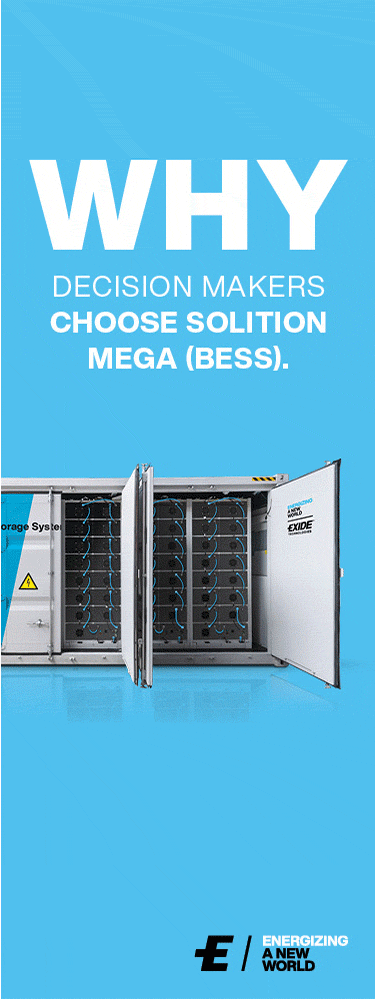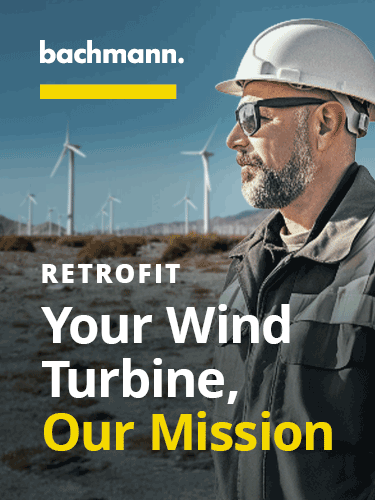News
New industry report addresses technical challenges as floating offshore wind progresses to commercial scale

13 July 2021, London: A new report released today analyses the technical opportunities and challenges for the floating offshore wind sector to overcome, as it moves towards commercial scale farms. The findings are the result of the latest work undertaken by the Floating Wind Joint Industry Project (JIP), the world-leading collaborative floating wind research and development programme managed by the Carbon Trust.
According to the report, despite Covid-19 related delays the global floating offshore wind industry is expected to grow from 74MW at the time of this release to 126MW by the end of 2021 with the completion of the largest floating offshore wind farm to-date at Kincardine, Scotland.
Many countries are considering floating wind, as it opens up new areas with high-wind resources that are not suitable for bottom-fixed installations, such as very deep waters. However, as outlined in the report, the industry has certain inherent challenges that need to be addressed in order to maximise the efficiency of commercial-scale floating offshore wind farms. These include:
· Heavy lift maintenance: commercial floating offshore wind farms are likely to be installed in deeper waters, where conventional jack-up vessels will not be a viable option. On top of this, the relative motion of the turbine versus a floating maintenance vessel is a key risk that needs to be mitigated.
· Tow-to-port: better solutions to safely disconnect and store all the connections when bringing the turbine back to port were researched, providing recommendations depending on the turbine platform design and the distance to port.
· Mooring in challenging environments: both very deep and very shallow waters come with inherent challenges for anchoring floating offshore wind platforms, from selecting the most cost-efficient mooring system, to mitigating the strong dynamic motions of waves experienced in shallower waters.
The Phase-III Summary report outlines these challenges and summarises the solutions that have emerged as part of the projects delivered within Phase-III and a technological competition managed by the Carbon Trust and the Floating Wind JIP.
The findings come at a time that the floating offshore wind sector is ready to scale up, and industry participation in the Floating Wind JIP is also increasing as bp and Tohoku Electric Power Co., Inc. have recently joined the programme alongside the 15 existing members: EDF Renouvelables, EnBW, Equinor, Kyuden Mirai Energy, Ocean Winds, Ørsted, Parkwind, RWE, ScottishPower Renewables, Shell, SSE Renewables, TEPCO, TotalEnergies, Vattenfall, and Wpd.
Aleida Rios, Senior Vice President Engineering, bp commented:
“bp has always seen the benefit of partnership and collaboration, both in terms of technological advancement and delivering solutions at scale. In becoming a member of the Carbon Trust’s Floating Wind JIP, we look forward to contributing and furthering the advancement of floating offshore wind solutions, as we continue to grow our renewables portfolio.”
Yasuo Miyatake, Executive Officer, Tohoku Electric Power said:
“Tohoku Electric Power is honoured to become a part of the Floating Wind JIP. In response to the growing momentum for decarbonisation internationally, we have declared the ‘Carbon Neutral Challenge 2050’ and we have been developing renewable energy, mainly onshore and offshore wind. We believe that floating offshore wind is a crucial power source for expanding our green development further. We look forward to working together with partners to tackle and solve the technical and economic challenges through the programme.”
Sam Strivens, Programme Manager, Floating Offshore Wind at the Carbon Trust added:
“A series of pilot arrays and demonstration projects have helped to prove the technical feasibility of floating offshore wind. Several national governments have announced dedicated leasing and support for pre- and early commercial floating offshore wind deployment. The main challenge for the industry now is a commercial one.
As we have seen in bottom-fixed offshore wind, our industry-led, collaborative R&D programmes have delivered significant cost reductions and de-risked technologies that accelerated commercialisation. Since 2016, the Floating Wind JIP has tackled the critical needs of the sector and as we welcome two new partners, we are confident that collectively we can deliver the same impact for floating offshore wind.”
About the Floating Wind JIP
The Floating Wind JIP, formed in 2016, is a collaborative research and development initiative between the Carbon Trust and 17 leading international offshore wind developers: bp, EDF Renouvelables, EnBW, Equinor, Kyuden Mirai Energy, Ocean Winds, Ørsted, Parkwind, RWE, ScottishPower Renewables, Shell, SSE Renewables, TEPCO, Tohoku Electric Power Co., TotalEnergies, Vattenfall, and Wpd. It has been established to accelerate the development of floating wind technology through cost reduction and de-risking of technology components and their manufacture, operation and maintenance.
About the Carbon Trust
Established in 2001, the Carbon Trust works with businesses, governments and institutions around the world, helping them contribute to, and benefit from, a more sustainable future through carbon reduction, resource efficiency strategies, and commercialising low carbon businesses, systems and technologies.
The Carbon Trust:
· works with corporates and governments, helping them to align their strategies with climate science and meet the goals of the Paris Agreement
· provides expert advice and assurance, giving investors and financial institutions the confidence that green finance will have genuinely green outcomes
· supports the development of low carbon technologies and solutions, building the foundations for the energy system of the future
Headquartered in London, the Carbon Trust has a global team of 300 staff, representing over 30 nationalities based across five continents.
















